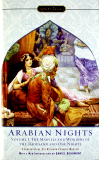Trauma and World Literature: The Turkey River, Turquoise, and Turning from Trauma
Larry Johnson
October 6, 2014
 In the mid 80s a late night storytelling event, on the banks of the Turkey River in Iowa, brought back a fascination with a grade school reader story about Southwest Native Americans creating turquoise jewelry.
In the mid 80s a late night storytelling event, on the banks of the Turkey River in Iowa, brought back a fascination with a grade school reader story about Southwest Native Americans creating turquoise jewelry.
A little research showed me turquoise was also sacred in ancient Persia (now Iran), and I was struck because it was the time of the Iran-Contra Senate hearings regarding the U.S. selling weapons to Iran. As someone who served as a medic, 1970-72, during the war in Vietnam, thoughts of the never ending destructiveness of weapons, war, and trauma, combined with the context of Persia, led me to a memory of Scheherezade, whose famous 1001 Nights Tales are recounted in many versions, print and film.
These often focus on the violence and intrigue of the individual stories, like “Ali Baba and the Forty Thieves.” I focused on the context, the story of the trauma this courageous woman from Ancient Persia set out to end with her storytelling. In doing this, I found something closer to the original, Arabian Nights: The Marvels and Wonders of The Thousand and One Nights, adapted from Richard Burton’s unexpurgated translation by Jack Zipes.
King Shahryar caught his Queen in an affair, and lashed out in a vendetta against all women, systematically wedding them, consummating the marriage, then executing them in the morning. Sheherezade, knowing she would be drafted, decided to enlist.
After the wedding night rape, our heroine began a horrendous tale to captivate the sadistic imagination of the King. At the peak of excitement she stopped and said, “I’m tired. I’ll finish it tomorrow.” The King begged for more, but each night Sheherezade did the same. She continued her “tune in again tomorrow” tales for 1001 nights, slowly building in elements of how to reign with justice, until finally the now educated king could not imagine his former evil self, and totally changed the way he lived and ruled.
In the last chapter, “The Marriage of Shahryar and Scheherezade,” the storyteller finishes her last tale about Sinbad, brings out the 3 sons she has birthed with the King, and begs to have her life spared so the children will be raised by their birth mother. The text says:
When the king heard this, he wept, drew the boys to his bosom, and said, “By Allah,oh Scheherezade, I pardoned you before these children were born, for I found you chaste, pure, ingenuous, and pious. . . . . May Allah be my witness that I exempt you from anything that can harm you.” . . . . “I shall never stop blaming myself for the past as long as I live. As for Scheherezade, there is nobody like her in all the world. So praise be to Him who appointed her as the means for saving His creatures from oppression and slaughter.”
The overall story suggests much about the occurance, effects, and overcoming of trauma, worldwide, or more local. Here I think it’s enough to simply consider the possible effects of storytellers acting in the spirit of Scheherezade.
Reference
Zipes, Jack (1991) Arabian Nights - The Marvels and Wonders of the Thousand and One Nights, Adapted from Richard F. Burton's Unexpurgated Adapted from Richard F. Burton's Unexpurgated Translation. New York: Penguin.